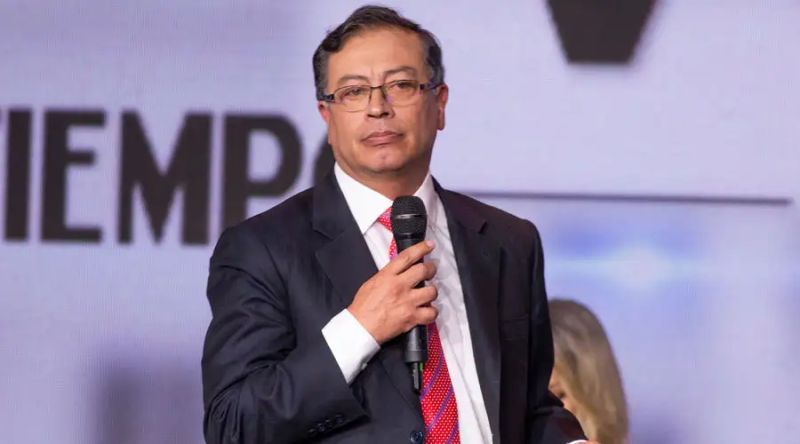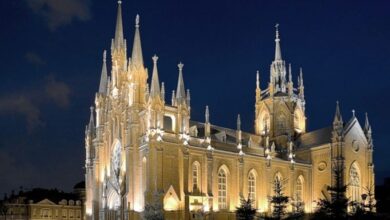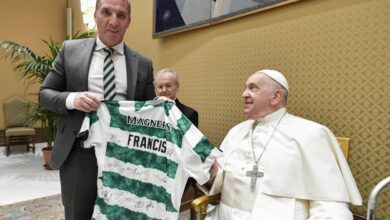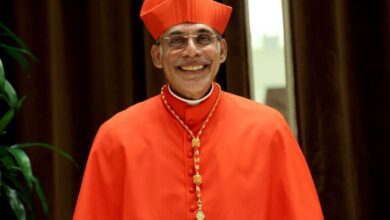Church in Colombia says government announcement of supposed cease-fire was a ‘great defeat’

 Gustavo Petro, president of Colombia. / Credit: Shutterstock
Gustavo Petro, president of Colombia. / Credit: Shutterstock CNA Newsroom, Jan 17, 2023 / 14:00 pm (CNA).
The Archdiocese of Bogotá has published an editorial criticizing the president of Colombia, Gustavo Petro, for announcing a supposed cease-fire, which the armed groups later denied they agreed to.
“We must interpret as a first great defeat of the current government of Colombia the rejection by the ELN guerrillas of a supposed and agreed upon cease-fire proclaimed by the president of the republic,” reads the editorial of the Archdiocese of Bogotá that appeared Jan. 11 in its own publication, El Catolicismo.
The ELN (National Liberation Army) is a guerilla group founded in 1964 on Marxist-Leninist principles and Liberation Theology.
The archdiocese points out in the article, titled “There is no easy peace,” that “the announcement had been made with fanfare, putting together various criminal organizations in one bag, but the announcement took longer [to make] than the denial.”
“What the national government may want to show is one thing and what the well-known armed actors are thinking is quite another,” the article continues.
These groups “are moved by desires for power, wealth, human and mining exploitation and have nothing to do with the social conflict that is generally cited as the cause of so much inhumanity and cruelty,” the archdiocese explains in the article.
Petro, a leftist politician who took office as Colombia’s president in August 2022 and was a member of the now defunct violent M-19 guerrilla group, announced Dec. 31, 2022, on Twitter the agreement for a bilateral cease-fire “with armed groups, which will be in force beginning Jan. 1, 2023, and will last for six months.”
The agreement supposedly included the guerrillas of the ELN, the Revolutionary Armed Forces of Colombia (FARC) faction that rejected the 2016 peace agreement negotiated with the Colombian government by FARC leaders, and the Gaitanista Self-Defense Forces of Colombia, as the Clan del Golfo is also known.
Shortly after the announcement, the ELN rebuffed Petro, stating that “there is still no agreement on this matter.”
“It is absolutely naïve to think that groups that have been at war for decades, in drug trafficking, in human trafficking, in illegal mining exploitation, that is, exercising de facto power in large territories and abundantly enriching themselves, are going to give up all that because the president of the republic speaks of total peace,” the Archdiocese of Bogotá points out in its editorial.
Offer to mediate
The Colombian bishops offer “again to mediate in whatever is possible to build the long, very long and difficult path for the desired peace,” the article states.
“But they cannot expose themselves to being used politically and thus undo the moral authority that is theirs. The current government has shown plenty of indications of how its words rarely correspond to reality and are more rhetorical and political than anything else,” the archdiocese observes in the article.
“And the prelates must take careful note of this so as not to let themselves get on a carousel that turns in a circle but has no marked course. Every word of the current government must be examined under a microscope,” the editorial emphasizes.
“Everything announced by the current head of state and his ministers must be given time to find out if it’s something real, a merely political action, words to quickly get out of problems that are raised or something hidden. Unfortunately, this is how things are,” the editorial observes.
“You don’t have to get excited about anything different and you even have to be afraid of magical or extraordinarily quick solutions. When you are in a hurry, it’s better to go slowly, as the saying goes,” the Archdiocese of Bogotá concludes in its editorial.
This story was first published by ACI Prensa, CNA’s Spanish-language news partner. It has been translated and adapted by CNA.





